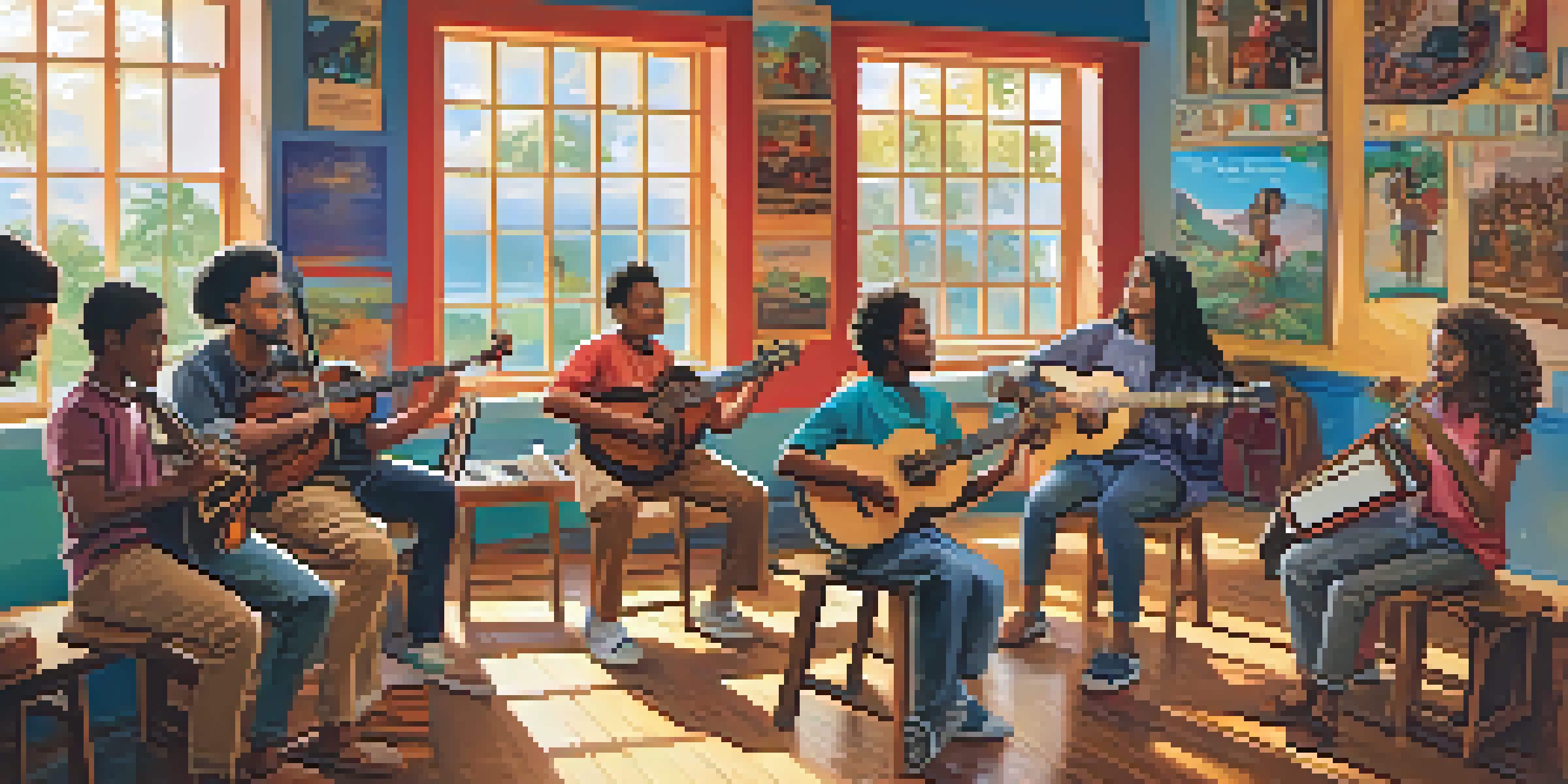Impact of Globalization on Music Education and Training

Understanding Globalization and Its Role in Music
Globalization refers to the interconnectedness of economies, cultures, and people across the globe. In the realm of music, this means that various musical styles, instruments, and traditions can easily cross borders, enriching societies. For music education, this interconnectedness offers a unique opportunity to blend local traditions with global influences, creating a richer learning environment for students.
Access to Diverse Musical Styles and Resources
With the rise of the internet and digital platforms, learners now have access to a plethora of musical styles from around the world. This exposure encourages students to explore genres outside their cultural norms, fostering creativity and innovation. For instance, a student in a small town can learn about Afrobeat or K-pop through online tutorials, broadening their musical horizons.
Globalization Enriches Music Education
The interconnectedness of cultures allows for the blending of local and global musical traditions in educational settings.
Cultural Exchange and Collaborative Learning
Globalization fosters cultural exchange, allowing music students to collaborate with peers from different backgrounds. This collaboration can take the form of international workshops, online jam sessions, or exchange programs. Such experiences not only enhance musical skills but also promote understanding and appreciation of diverse cultures.
The Impact of Technology on Music Training
Technology plays a crucial role in music education, enabling students to learn through innovative methods. Online courses and apps provide personalized music training that can be accessed anytime, anywhere. This flexibility allows learners to tailor their education to their own pace, making music education more inclusive.
Technology Transforms Learning Methods
Innovative tools and online resources provide flexible and personalized music education, enhancing accessibility for students.
Challenges of Globalization in Music Education
While globalization offers many advantages, it also presents challenges. One significant concern is the potential loss of local musical traditions as global influences dominate. Educators must strive to balance teaching universal music concepts with preserving unique cultural identities, ensuring that students appreciate both global and local sounds.
The Role of Music Educators in a Globalized Context
Music educators play a pivotal role in navigating the complexities of globalization. They must adapt their teaching methods to incorporate diverse musical influences while maintaining a strong foundation in traditional practices. By embracing global perspectives, educators can better prepare students for a multifaceted music industry.
Balancing Global Influence and Tradition
Educators face the challenge of preserving local musical identities while integrating diverse global influences into their teaching.
Future Trends in Music Education and Globalization
As globalization continues to evolve, so will the landscape of music education. Emerging trends such as virtual reality music lessons and AI-driven composition tools are set to transform how students learn. Embracing these trends can help educators stay relevant and provide a dynamic learning experience that resonates with the needs of modern students.
Conclusion: Embracing Global Influences in Music Education
In conclusion, globalization profoundly impacts music education and training, offering both opportunities and challenges. By embracing diverse influences, educators can enrich their curricula and prepare students for a globalized music world. Ultimately, the goal is to foster a generation of musicians who are not only skilled but also culturally aware and open-minded.